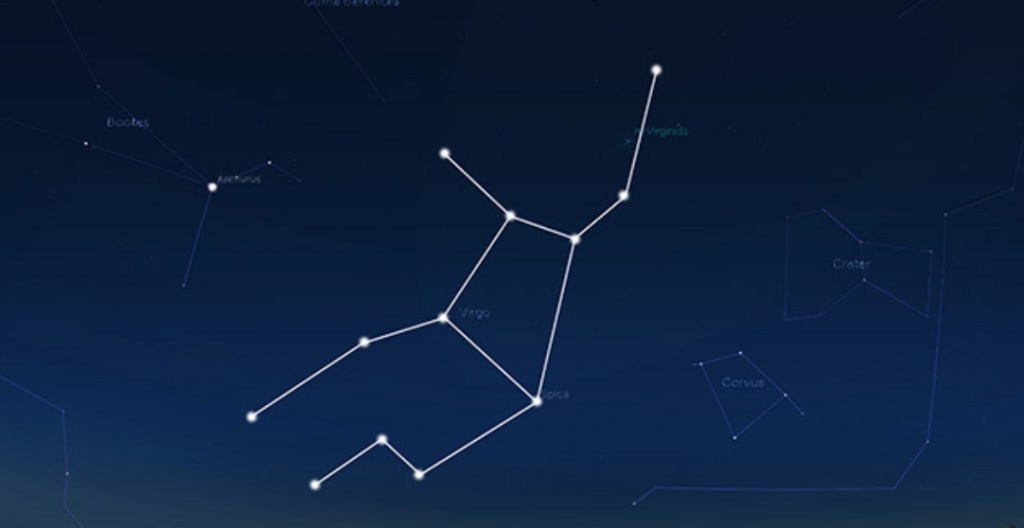Beyond the Stars
Science on Star Signs, and Why Science is Wrong

Your star sign is wrong. The science has proved it.
It's not known who or where the first people to look to the skies for answers were, but it's a practice that has cropped up throughout history in a vast array of cultures. What we know as modern astrology can be dated back around two thousand years and is believed to originate from Babylonia. It was there that thirteen constellations became the basis on which the zodiac was split, and the basis on which people’s personality traits were believed to be assigned by the zodiac system. That's right; thirteen. But we'll come back to that.
There are thousands of constellations in the sky, so what was so special about these thirteen that made them the all-powerful zodiac signs? Well, it’s about their position relevant to planet earth and the sun. From our place in the solar system, we get a certain view of the stars, and as we orbit the sun, there is a band of constellations just perfectly placed for us to see them pass ‘behind’ the sun. And these became Babylonia’s star signs. At the time of your birth, whichever constellation of the thirteen was passing behind the sun was yours. Your character, compatibility with others and even the events in your day-to-day life determined by those stars.
All makes sense, right? But here’s where things begin to get a little murky. Today, astrologers cite twelve zodiac signs, and the time they’re allotted in the solar calendar is split into around thirty days each, roughly corresponding to the months of the year. But if you look to the skies, that’s not really how it works. You see, the constellation Scorpio actually only takes seven days to pass behind the sun, while Virgo takes forty-five, and the other constellations anywhere in between. Not only this, but if you were born in late December or early January, then you likely belong to our missing thirteenth star sign; Ophiuchus.
But Ophiuchus has been left out. And we don’t really know why, but it's suspected that with twelve months of the year, and thirteen signs, the Babylonian ancients decided one had to go. And with the most difficult pronunciation and spelling, and situated at the very end of the year, it was Ophiuchus that was kicked to the curb. So, we can see that astrology is not so much based on the stars as it is based on what worked for the people who made up the system.
Now let’s talk about precession. Precession is the slight change in the orientation of earth’s rotational axis as it orbits the sun, which can be observed over thousands of years. The consequences of precession mean that our view of the sky today is different to how the Babylonians saw it two thousand years ago, and that the zodiac constellations pass behind the sun at slightly different times of year. So, according to the system, many Libras may actually be Virgos and many Cancers would actually be Geminis. This means that even if the ancients hadn’t messed with the system, excluded poor Ophiuchus and changed dates as they pleased, you still could have been born under a different sign to what you thought.
Lastly, how can what’s happening in the sky actually affect us? We know that the moon is close enough to earth to affect some natural events such as tide cycles and animal behaviour. There are even theories that the moon phases can influence human behaviour such as the full moon making people a little crazy. However, there’s no evidence to suggest that celestial bodies close to earth can have any effect on us, behaviour, personality or otherwise. And if the moon can’t do this, how could constellations in the distance behind the sun have any impact at all? The simple fact is that they can’t.
So, it’s not looking good for astrology. There’s a lot of party pooping science that says so. But millions of people around the world put significant value in their star sign. People read their horoscopes daily and make decisions about who they date based on their sign’s compatibility. And for many, it’s a source of hope, guidance and foundation for their identities. Can we really say something isn’t real when its culturally alive and breathing?
In fact, zodiac signs are so commonly known and cited in modern western culture that most people feel some sense of connection to theirs, even if they don’t really know what this astrology thing is about or how it’s supposed to work. The line between astrology as a spiritual belief and as a cultural tool has even become blurred. Marketing schemes for commodities such as jewellery, essential oils, clothes and make-up are often based on what suits different star signs. You can buy books, listen to podcasts and even pick a diet and exercise regime curated for your sign. There is more astrological rhetoric in our lives than might be obvious at first, and the zodiac is well and truly ingrained in our society.
People are drawn to things that give them a sense of belonging and identity. There’s nothing fabricated about that and there’s nothing to say that those things are any less real if they can’t be scientifically explained. Cultural significance makes them real. After all, I’m a Virgo, and how very typical of a Virgo to cling to their science and nice, neat explanations. But even the science can’t sway the sense of connection I feel to my sign.
About the Creator
Jeanie Mae
Writer of stories and poetry, chaser of sunsets 🌄🌅🌇
Follow me on instagram @jeaniemae_writer






Comments
There are no comments for this story
Be the first to respond and start the conversation.